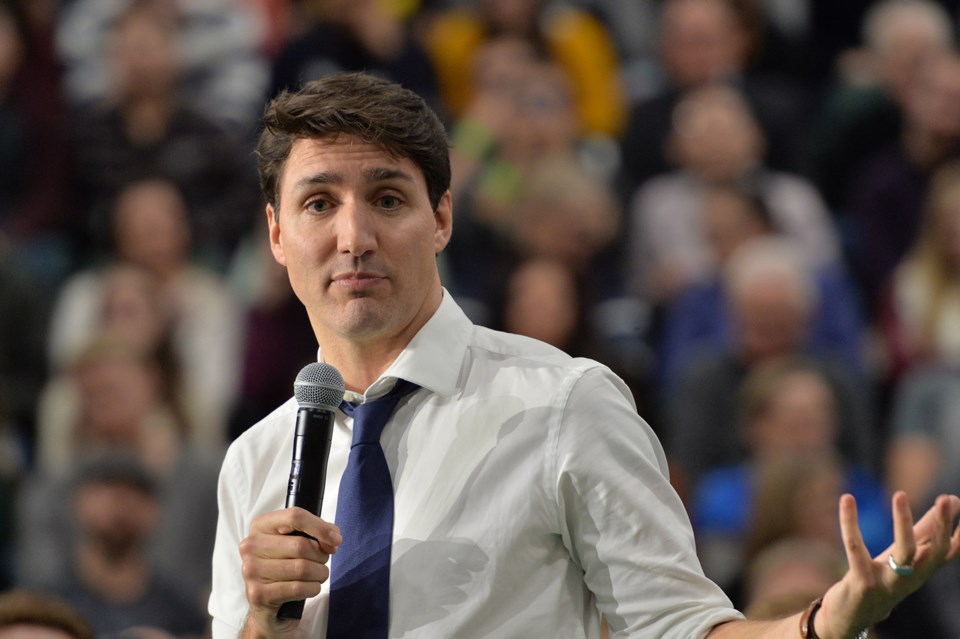Timing is everything in politics.
If New Democratic Party (NDP) leader Jack Layton had not emerged as the clear winner of the 2011 federal leaders’ English language debate in Canada, the Liberal Party may have had a chance to regroup and stop the Conservative Party from forming a majority government.
If a televised debate had not aired so early on CNN in the presidential electoral season this year, Democratic Party supporters in the United States would not have realized that Joe Biden had to be replaced as their nominee.
For the past five years, Research Co. has asked Canadians about the performance of prime ministers and opposition leaders since the late 1960s. Every year, more Canadians who did not live under the watch of most of these politicians become eligible to cast ballots in federal elections, leading to a high level of undecided responses when assessing people like Robert Stanfield or Preston Manning.
Still, whether we remember the tenures of Joe Clark or John Turner, history and timing have a funny way of affecting our views. In 2023, Pierre Trudeau finished first on the list of best recent prime ministers with 20 per cent, followed by Stephen Harper (17 per cent), Jean Chrétien (11 per cent), Justin Trudeau (also 11 per cent) and Brian Mulroney (eight per cent).
Mulroney passed away in February, leading to significant coverage — in television, radio and print — about his almost nine years in office. When we asked Canadians about the best prime ministers again this year, Pierre Trudeau remains on top with 18 per cent (down two points), followed by Harper with 16 per cent (down one point).
Mulroney is a very close third with 15 per cent (up seven points), followed by Justin Trudeau with 10 per cent (down one point) and Chrétien with nine per cent (down two points).
The survey shows a significant shift from previous years. Positive views are lower for four of the top five heads of government the country has had since 1968, while Mulroney almost doubled his support between 2023 and 2024.
Canadians aged 55 and over are particularly fond of Mulroney this year, putting him in first place with 23 per cent, slightly ahead of Pierre Trudeau (21 per cent). In Quebec, Mulroney is also in first place with 24 per cent, followed by Pierre Trudeau (18 per cent) and Chrétien (12 per cent).
Mulroney also performed well on the “worst prime minister” question, going from six per cent last year to three per cent now. This category finds Justin Trudeau ahead of all others with 38 per cent (up eight points), followed by Harper with 14 per cent (down four points).
Negative views of the current prime minister are particularly high among residents of Saskatchewan and Manitoba (52 per cent), Albertans (55 per cent) and Conservative Party voters in the 2021 election (74 per cent). In a sign of how complicated rekindling with the base has become, 14 per cent of Liberal voters in 2021 say Justin Trudeau has been the worst recent prime minister. Among NDP voters, he is ahead of Harper (29 per cent to 26 per cent).
The former leaders of the Official Opposition fared better this year, although three categories are still populated by the usual names. Just over half of Canadians (52 per cent, up four points) think Layton would have made a “very good” or “good” prime minister, and more than three in ten feel the same way about Tom Mulcair (34 per cent, up seven points), Stanfield (33 per cent, up six points), Manning (33 per cent, up five points) and Erin O’Toole (31 per cent, up nine points).
Five other names are ranked lower as “PM Material”: Rona Ambrose (27 per cent, up nine points), Andrew Scheer (27 per cent, up five points), Stockwell Day (26 per cent, up seven points), Stéphane Dion (24 per cent, up six points) and Michael Ignatieff (22 per cent, up three points).
We will have to wait to see if Mulroney maintains his place in 2025, when coverage of his actions in office is not as ubiquitous as it was this year. The other issue that has become evident is the souring of the population on the current dweller of 24 Sussex.
Since we started tracking this question, the proportion of Canadians who think Justin Trudeau is the worst recent prime minister has grown every year, from 18 per cent in 2020, to 22 per cent in 2021, to 29 per cent in 2022, to 30 per cent in 2023 and to 38 per cent this year. The perceptions of middle-aged Canadians help illustrate the gravity of the situation. In 2020, Canadians aged 35-54 were more likely to select Harper as the worst recent prime minister (25 per cent) than Justin Trudeau (21 per cent). Since then, Harper has shed 14 points (11 per cent) and Trudeau has gained 24 points (45 per cent).
Mario Canseco is president of Research Co.
Results are based on an online study conducted from Aug. 19 to Aug. 21, 2024, among 1,002 adults in Canada. The data has been statistically weighted according to Canadian census figures for age, gender and region. The margin of error, which measures sample variability, is +/- 3.1 percentage points, 19 times out of 20.



